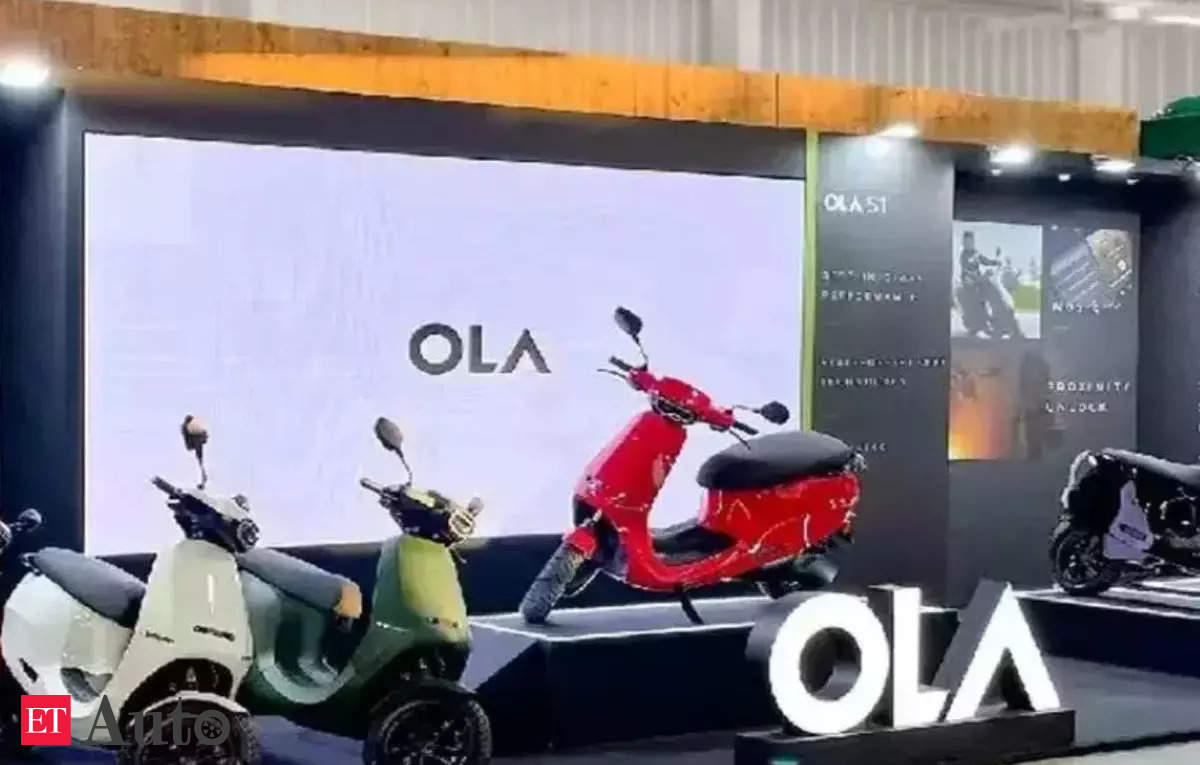Reports of consumer protection issues with automotive companies

Ola Electric Mobility, once a beacon of the digital-only sales model for electric scooters in India, is now facing a storm of regulatory challenges as it rapidly expands its brick-and-mortar showroom presence. A recent investigation by Bloomberg News has uncovered widespread non-compliance with India’s Motor Vehicles Act among Ola's physical stores, raising questions about the company's aggressive growth strategy and its commitment to regulatory standards.
Widespread Non-Compliance: A Deep Dive
Ola Electric's transition from a digital-first approach to a network of 4,000 physical locations since 2022 has been fraught with regulatory hurdles. According to the Bloomberg investigation, a staggering 95% of the roughly 3,400 showrooms analyzed lacked the necessary trade certificates mandated by the Motor Vehicles Act. These certificates are essential for showrooms to legally display, sell, offer test rides, or transport unregistered two-wheelers.
The consequences of this widespread non-compliance have been significant. Transport authorities across various Indian states have responded to customer complaints by conducting raids, shutting down showrooms, seizing vehicles, and issuing show-cause notices to Ola, as revealed by internal documents and government warnings.
Hans Kumar, a retired assistant transport commissioner, emphasized the importance of trade certificates for all auto showrooms dealing with unregistered vehicles, a requirement seemingly overlooked by a vast majority of Ola's stores. Interviews with at least six local transport officials further confirmed ongoing investigations into Ola for alleged violations, highlighting the darker side of the company's rapid expansion.
Ola's Response and Counterarguments
In response to these allegations, an Ola spokesperson dismissed the investigation's findings as "misplaced and prejudiced." The company maintains that its distribution centers and warehouses, where unregistered vehicles are stored, fully comply with the Motor Vehicles Act and possess the necessary approvals. However, Ola's response did not directly address the lack of trade certificates in its public-facing stores or the reported raids and seizures by local transport regulators.
Mounting Crises and Market Challenges
The regulatory challenges come at a time when Ola Electric is already grappling with multiple crises. The company's shares have plummeted over 60% since its listing in August, and it has faced a barrage of customer complaints regarding quality and service issues, leading to social media backlash and widening financial losses. In October, CEO Bhavish Aggarwal acknowledged the need to expand the company's network to address customer concerns.
Adding to the company's woes, Ola Electric recently laid off over a thousand employees and contract workers as part of a restructuring and automation effort. The launch of its highly anticipated e-motorcycles has also been delayed, further compounding the challenges.
Evidence of Regulatory Scrutiny
Bloomberg's investigation cited nearly two dozen notices from state-level transport officials, indicating increased scrutiny of Ola's operations and frequent instances of non-compliance with trade certificate requirements. Documents revealed that Ola sporadically applied for and obtained trade certificates in response to transport department notices or raids. The earliest warning to Ola regarding these violations dates back to at least 2023, with the most recent occurring in early March. Despite the ongoing regulatory action, Ola launched a store expansion blitz in December, adding over 3,200 new locations, most of which lacked the necessary trade certificates, according to the report.
Ola has reportedly told transport authorities that its experience centers are solely for "customer engagement" and not direct sales, but regulatory probes have persisted across states.
Discrepancies in Sales and Registration Figures
A significant red flag was raised when Ola reported selling "over 25,000 vehicles" in February, while the government's VAHAN portal showed only 8,600 registrations. This discrepancy is concerning because customers cannot legally receive unregistered vehicles in India, and automakers typically only count registered vehicles in their sales figures. Ola attributed the delay in registration updates to a previously flagged issue in an exchange filing, but the gap remains a cause for concern.
Impact on Market Share and Financial Performance
The widespread non-compliance and regulatory scrutiny have coincided with rising pressure to boost scooter sales and a plummeting share price. Ola has also lost market share to legacy manufacturers like Bajaj Auto Ltd. and TVS Motor Co., according to VAHAN database figures. Despite these challenges, CEO Aggarwal remains optimistic about a turnaround, stating that the company expects to achieve auto segment EBITDA breakeven at around 50,000 monthly sales within the next few quarters.
Counterfeit Parts Found in Volvo Cars in China
Separately, in the automotive industry, concerns have emerged in China regarding the installation of counterfeit parts in Volvo cars. Customers have reported that their vehicles were equipped with fake speakers and other features, rather than the genuine articles. This issue came to light when a Volvo S60 owner noticed differences in the cabin compared to other S60 models, specifically a Bowers & VVilkins audio system (with two "V"s instead of a "W") instead of the genuine Bowers & Wilkins system. The crystal-style gearshift lever also lacked the light-emitting feature typically found in high-spec Volvo models.
Volvo's Chinese division has issued a statement expressing regret and emphasizing that the installation of counterfeit products was done at the local dealer level and not by Volvo itself. The company has launched a special investigation to protect the rights and interests of its customers.
Ensuring Authenticity Through PDI Services
To safeguard against such issues, car buyers are advised to thoroughly inspect their vehicles using Pre-Delivery Inspection (PDI) services to ensure the authenticity of all components and features.












